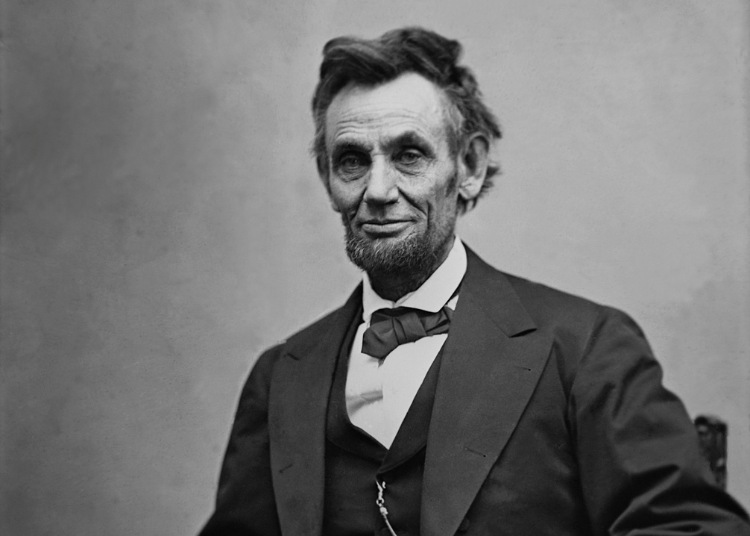Introduction
Abraham Lincoln, the 16th President of the United States, is revered as one of the nation’s greatest leaders. His presidency, marked by the Civil War and the issuance of the Emancipation Proclamation, reshaped the United States and ended slavery. Known for his wisdom, humility, and leadership during turbulent times, Lincoln’s legacy endures as a symbol of democracy and equality.
Key Information
| Category | Details |
|---|---|
| Full Name | Abraham Lincoln |
| Date of Birth | February 12, 1809 |
| Date of Death | April 15, 1865 |
| Birthplace | Hodgenville, Kentucky, USA |
| Astrological Sign | Aquarius |
| Height | 6 feet 4 inches |
| Spouse | Mary Todd Lincoln (married in 1842) |
| Children | Robert Todd, Edward Baker, William Wallace, Thomas “Tad” |
| Profession | Lawyer, Politician |
| Presidency | 16th President of the United States (1861–1865) |
Career
Early Beginnings
Lincoln’s rise from a modest background began in rural Kentucky and Indiana. With little formal education, he developed a love for reading and self-education. After working various jobs, including as a storekeeper and postmaster, Lincoln studied law independently, becoming a lawyer in 1837.
Political Career
Lincoln’s political journey started in the Illinois state legislature in 1834 as a member of the Whig Party. His opposition to the expansion of slavery and support for infrastructure development shaped his early career. He served a single term in the U.S. House of Representatives (1847–1849) before returning to law.
National Prominence
The Kansas-Nebraska Act (1854) reignited Lincoln’s political ambitions, as he vehemently opposed slavery’s expansion. He gained national attention during the 1858 debates with Stephen Douglas, although he lost the Illinois Senate race. In 1860, Lincoln was elected president, supported by his moderate stance on slavery and strong vision for national unity.
Presidency and Civil War
Lincoln’s presidency was dominated by the Civil War. Under his leadership:
- The Union was preserved.
- The Emancipation Proclamation (1863) was issued, reshaping the war’s purpose to include the abolition of slavery.
- He delivered the Gettysburg Address (1863), defining the war as a fight for democracy and equality.
Lincoln’s wartime decisions, such as suspending habeas corpus and distributing funds for war without Congressional approval, showcased his unyielding commitment to saving the Union.
Personal Life
Family Background
Born to Thomas and Nancy Lincoln, young Abraham endured significant hardships, including the death of his mother at age 9. His stepmother, Sarah Bush Johnston, supported his education and nurtured his intellectual curiosity.
Marriage and Children
Lincoln married Mary Todd in 1842. The couple had four sons, but only Robert Todd survived into adulthood. The couple’s marriage faced challenges, including the loss of their children and Mary’s struggles with mental health.
Hobbies and Interests
Known for his storytelling and wit, Lincoln enjoyed reading, wrestling, and the outdoors. His passion for learning shaped his character, and he became known for his self-taught mastery of law and politics.
Notable Achievements
- Emancipation Proclamation (1863): Freed enslaved people in Confederate states, paving the way for the abolition of slavery.
- Gettysburg Address: Redefined the Civil War as a struggle for equality and democracy.
- 13th Amendment: Advocated for the abolition of slavery, which was passed after his death.
- Civil War Leadership: Preserved the Union during America’s most devastating conflict.
- National Wrestling Hall of Fame: Posthumously honored for his physical prowess and wrestling achievements.
Current Legacy
Cultural Impact
Lincoln’s legacy is celebrated in numerous ways:
- Lincoln Memorial: A prominent monument in Washington, D.C., honoring his vision and leadership.
- Pop Culture: Featured in films like Lincoln (2012) and Young Mr. Lincoln (1939).
- Education: Lincoln remains a central figure in American history, representing the ideals of equality and perseverance.
Enduring Influence
Lincoln’s philosophies on governance, equality, and leadership continue to inspire. His quotes, including “government of the people, by the people, for the people,” resonate as guiding principles for democracy.
Conclusion
Abraham Lincoln’s life exemplifies the American ideal of perseverance, resilience, and moral courage. From his humble beginnings to his transformative presidency, Lincoln’s contributions to the nation’s unity and values remain unparalleled. His legacy endures as a cornerstone of American history and a beacon of hope for equality and freedom.



